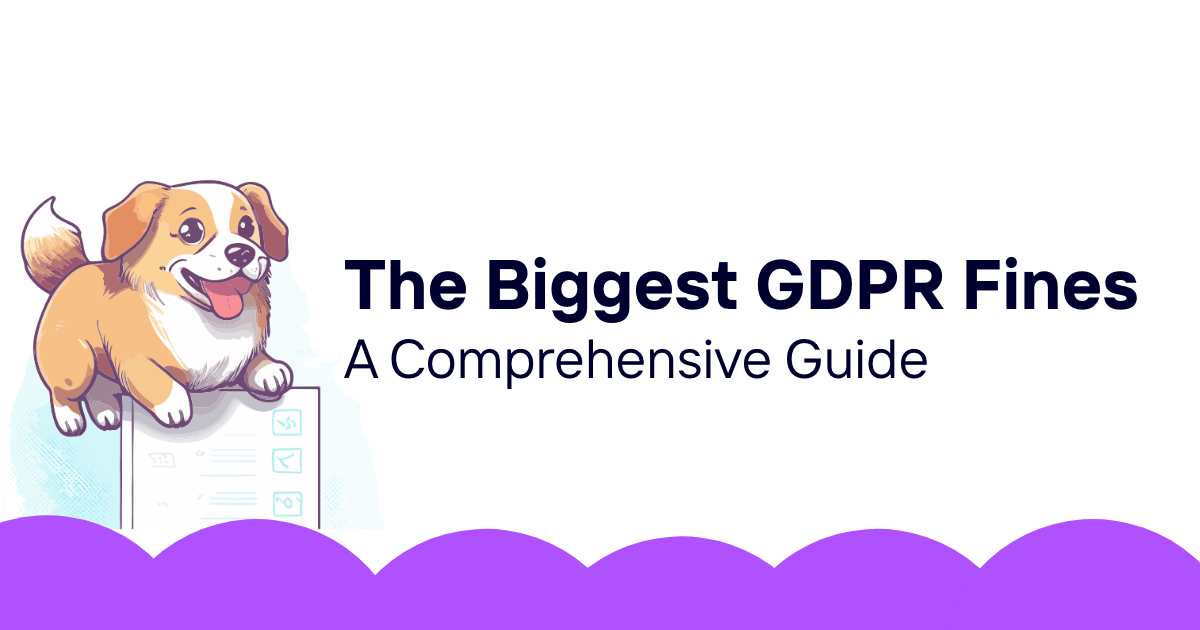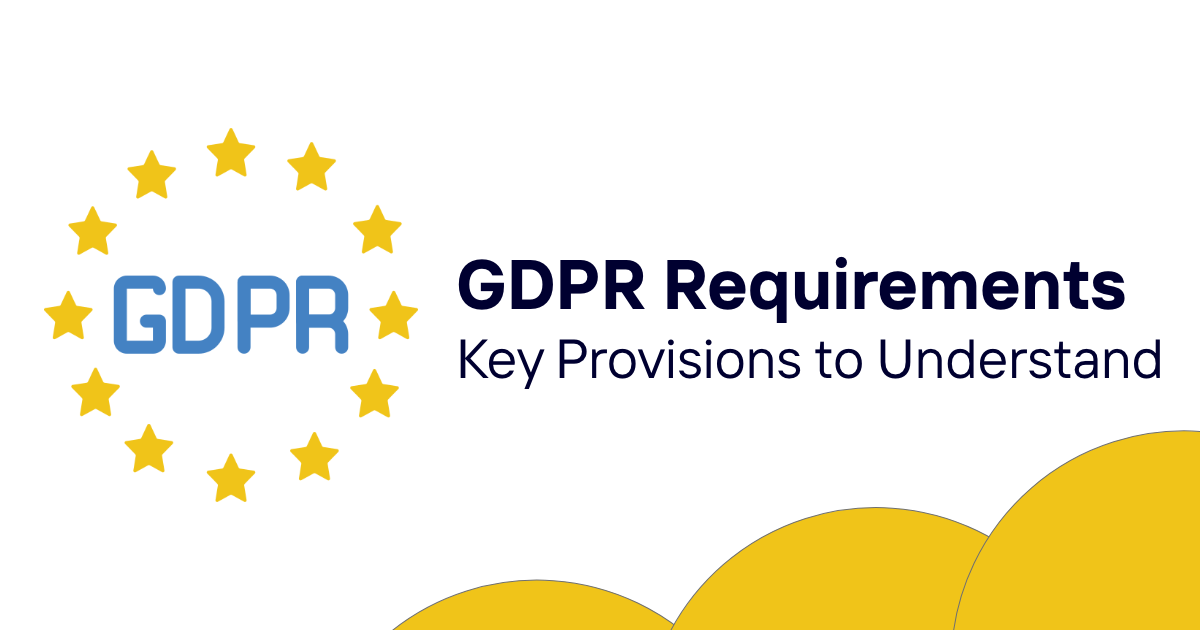The European Union's General Data Protection Regulation (GDPR) has significantly reshaped the landscape of data privacy and protection since its implementation in 2018. As companies worldwide strive to comply with these stringent regulations, non-compliance can result in substantial fines. In this article, we will explore the biggest GDPR fines imposed in 2024, providing a comprehensive understanding of the violations, the affected parties, and the lessons learned from these cases.
Table of Contents
- Meta's Colossal €1.2 Billion Fine: A Wake-Up Call for Data Privacy
- Amazon's €746 Million Penalty: The Consequences of Improper Data Handling
- Instagram's €405 Million Fine: Protecting Children's Data
- Meta's €390 Million Penalty: Transparency and Consent Violations
- TikTok's €345 Million Fine: Safeguarding Young Users
- Meta's €265 Million Penalty: Data Breaches and Security Lapses
- WhatsApp's €225 Million Fine: Transparency Issues
- Google's €150 Million Penalty: Cookie Consent Violations
- CRITEO's €40 Million Fine: Failures in Data Privacy
- H&M's €35.25 Million Penalty: Excessive Employee Data Collection
- Key Takeaways and Lessons Learned
Meta's Colossal €1.2 Billion Fine: A Wake-Up Call for Data Privacy
In a groundbreaking decision, the Irish Data Protection Commission (DPC) imposed a record-breaking €1.2 billion fine on Meta, the parent company of Facebook, Instagram, and WhatsApp. This fine, the highest ever issued under the GDPR, was a consequence of Meta's failure to comply with the Schrems II decision, which invalidated the EU-US Privacy Shield Framework.
The DPC's investigation found that Meta had been transferring personal data of European users to the United States without adequate protection mechanisms. This violation of GDPR's international transfer guidelines resulted in the staggering fine, serving as a stark reminder of the importance of data privacy compliance.
In addition to the fine, Meta has been ordered to cease the international transfers and has been given five months to comply with the corrections. The company has announced its intention to appeal the decision, setting the stage for a lengthy legal battle that could have far-reaching implications for data transfers and privacy rights in the digital age.
Amazon's €746 Million Penalty: The Consequences of Improper Data Handling
In July 2021, the Luxembourg National Commission for Data Protection (CNDP) issued a staggering €746 million fine to Amazon.com Inc., marking one of the highest GDPR fines ever imposed. The fine stemmed from a complaint filed by a French privacy rights group, La Quadrature du Net, on behalf of 10,000 Amazon customers.
The CNDP's investigation revealed that Amazon had been tracking user data for targeted advertising purposes without acquiring appropriate consent or providing users with sufficient means to opt out. This violation of GDPR's data privacy principles highlighted the importance of transparent data processing practices and respect for user consent.
While Amazon has expressed its intention to appeal the decision, arguing that no data breaches or exposure of private data to third parties had occurred, the case underscores the need for companies to prioritize data privacy and comply with GDPR requirements.
Instagram's €405 Million Fine: Protecting Children's Data
In September 2022, the Irish Data Protection Commission (DPC) fined Meta €405 million for violating GDPR rules on the processing of children's data. The investigation focused on Instagram's business accounts, where the platform was found to have publicly displayed the phone numbers and email addresses of users aged 13 to 17 without appropriate safeguards or consent.
The DPC's decision highlighted the importance of implementing robust data protection measures, especially when dealing with the personal information of minors. Companies must prioritize transparency, obtain valid consent, and conduct thorough data protection impact assessments to ensure compliance with GDPR regulations.
Instagram's response to the fine indicated its disagreement with the calculation methods used by the DPC, potentially setting the stage for further legal proceedings. However, the case serves as a reminder of the need to prioritize children's data privacy and implement adequate safeguards.
Meta's €390 Million Penalty: Transparency and Consent Violations
In January 2023, Meta faced another significant fine from the Irish Data Protection Commission (DPC), this time amounting to €390 million. The DPC found that Meta had changed the legal basis for data processing from consent to contract performance without providing users with sufficient transparency or choice.
Meta had introduced new terms of service requiring users to accept the changes to continue accessing their Facebook and Instagram accounts. However, the DPC determined that this approach essentially forced users to consent, violating the GDPR's principles of transparency and freely given consent.
The case highlighted the importance of clear and unambiguous communication with users regarding data processing activities, as well as the need for genuine choice and control over personal data. Companies must ensure that their terms of service and privacy policies align with GDPR requirements, providing users with meaningful information and options.
TikTok's €345 Million Fine: Safeguarding Young Users
In September 2023, the popular video-sharing platform TikTok was fined €345 million by the Irish Data Protection Commission (DPC) for violating GDPR principles related to data processing, transparency, and fairness concerning young users.
The DPC's investigation focused on TikTok's handling of personal data for children under the age of 13, particularly the automatic setting of public profiles for these users and the lack of adequate age verification measures.
The case underscored the importance of implementing robust data protection measures specifically tailored to minors, as well as the need for transparent communication and fair data processing practices. Companies operating in the digital space must prioritize the safety and privacy of their youngest users, ensuring compliance with GDPR regulations and fostering trust among parents and guardians.
Meta's €265 Million Penalty: Data Breaches and Security Lapses
In November 2022, the Irish Data Protection Commission (DPC) imposed a €265 million fine on Meta for failing to implement adequate technical and organizational measures to protect personal data, as required by the GDPR's principles of data protection by design and default.
The DPC's investigation revealed that a dataset containing personal information of up to 533 million Facebook users had been made available on a public hacking platform, exposing phone numbers and email addresses without authorization.
This case highlighted the importance of robust security measures and proactive data protection practices. Companies must prioritize the implementation of effective safeguards to prevent data breaches and unauthorized access to personal information, as well as promptly address any identified vulnerabilities.
WhatsApp's €225 Million Fine: Transparency Issues
In September 2021, the Irish Data Protection Commission (DPC) fined WhatsApp, a subsidiary of Meta, €225 million for failing to provide transparent information to users regarding the processing of their personal data.
The DPC's investigation found that WhatsApp's privacy policies lacked clarity, making it difficult for users to understand how their data was being used and to provide valid consent. This violation of the GDPR's transparency principles underscored the importance of clear and concise communication with users regarding data processing activities.
Companies must ensure that their privacy policies and terms of service are written in plain language, providing users with meaningful information about the collection, use, and sharing of their personal data. Failure to do so can result in significant fines and damage to consumer trust.
Google's €150 Million Penalty: Cookie Consent Violations
In December 2021, the French data protection authority (CNIL) fined Google a total of €150 million for failing to comply with the GDPR's requirements regarding cookie consent.
The CNIL found that Google did not provide users with an easy way to refuse cookies on its platforms, including YouTube and Google Search. This violated the GDPR's principle of freely given consent, as users were effectively nudged towards accepting cookies due to the complexity of the refusal process.
The case highlighted the importance of providing users with clear and accessible options for managing their cookie preferences, as well as the need for companies to respect user choice and privacy settings. Failure to do so can result in substantial fines and damage to reputation.
CRITEO's €40 Million Fine: Failures in Data Privacy
In June 2023, the French data protection authority (CNIL) fined the online advertising company CRITEO €40 million for multiple GDPR violations, including the lack of valid consent, insufficient transparency, and failure to enable user rights.
The CNIL's investigation found that CRITEO had deployed trackers without user consent, failed to provide clear and accessible information in its privacy policy, and did not implement adequate procedures for users to exercise their data protection rights, such as data access, consent withdrawal, and data erasure.
This case underscored the importance of implementing comprehensive data privacy measures, from obtaining valid consent to ensuring transparency and enabling user rights. Companies operating in the digital advertising space must prioritize compliance with GDPR requirements to avoid substantial fines and maintain consumer trust.
H&M's €35.25 Million Penalty: Excessive Employee Data Collection
In 2020, the Hamburg Commissioner for Data Protection and Freedom of Information (BfDI) fined the Swedish retail giant H&M €35.25 million for violating the GDPR by collecting and retaining excessive personal data about its employees.
The investigation revealed that H&M had collected sensitive information about its employees, including medical records, family affairs, and private details obtained through gossip and hearsay. This data was then used in employment-related decisions, violating the GDPR's principles of data minimization, purpose limitation, and lawful processing.
The case served as a reminder that employee data privacy must be respected, and companies should only collect and process personal data that is strictly necessary for legitimate business purposes. Failure to comply with these principles can result in significant fines and reputational damage.
Key Takeaways and Lessons Learned
The GDPR fines imposed in 2024 have highlighted several key lessons for companies operating in the digital landscape:
-
Prioritize Data Privacy: Data privacy should be a top priority for organizations, with robust measures implemented to ensure compliance with GDPR requirements. This includes obtaining valid consent, providing transparent information, enabling user rights, and implementing adequate security measures.
-
Respect User Consent: Companies must respect user choice and provide clear and accessible options for managing cookie preferences, data processing, and other privacy-related settings. Failure to do so can result in substantial fines and damage to consumer trust.
-
Protect Children's Data: Special attention must be given to the protection of children's personal data, with companies implementing tailored measures to ensure transparency, consent, and age-appropriate safeguards.
-
Implement Data Minimization: Organizations should only collect and process personal data that is strictly necessary for legitimate business purposes, adhering to the principles of data minimization and purpose limitation.
-
Foster Transparency: Clear and concise communication with users regarding data processing activities is essential. Privacy policies and terms of service should be written in plain language, providing meaningful information and fostering trust.
-
Prioritize Security: Robust technical and organizational measures must be implemented to protect personal data from unauthorized access, data breaches, and security vulnerabilities. Proactive measures and prompt response to identified risks are crucial.
-
Respect Employee Privacy: Employee data privacy should be respected, and companies should refrain from collecting and processing excessive personal information beyond what is necessary for legitimate business purposes.
As the GDPR continues to shape the landscape of data privacy and protection, companies must remain vigilant in their compliance efforts. By prioritizing data privacy, respecting user rights, and fostering transparency, organizations can not only avoid substantial fines but also maintain consumer trust and operate ethically in the digital age.
















